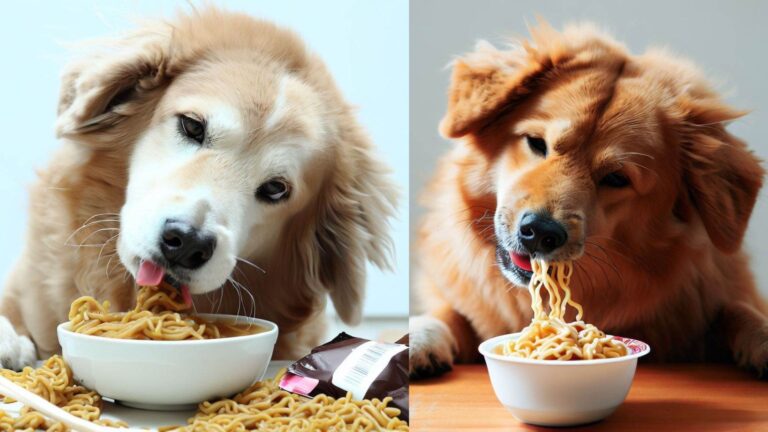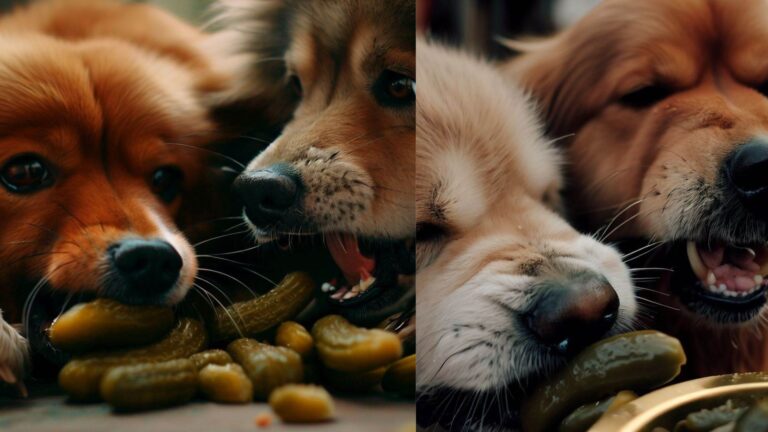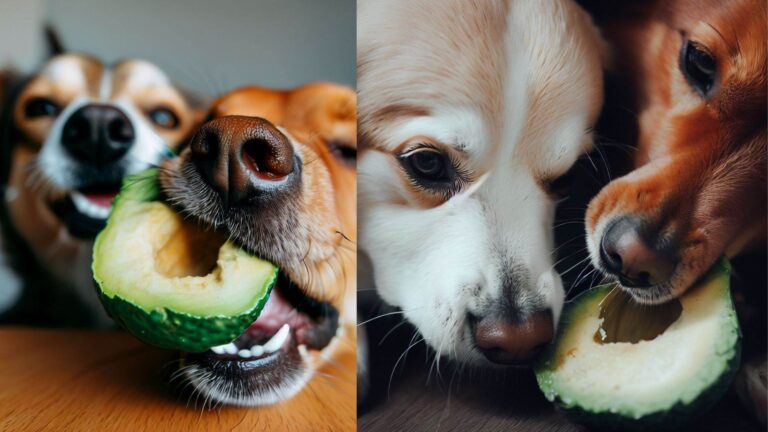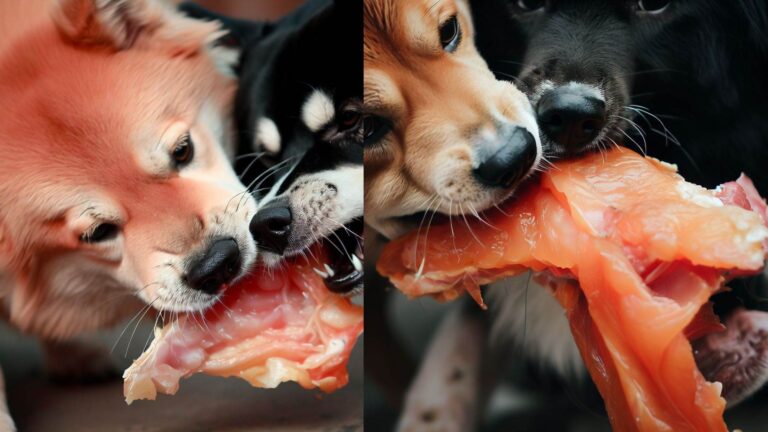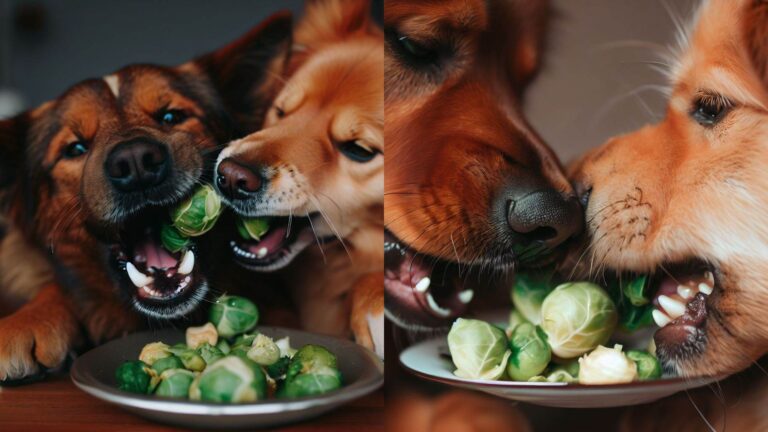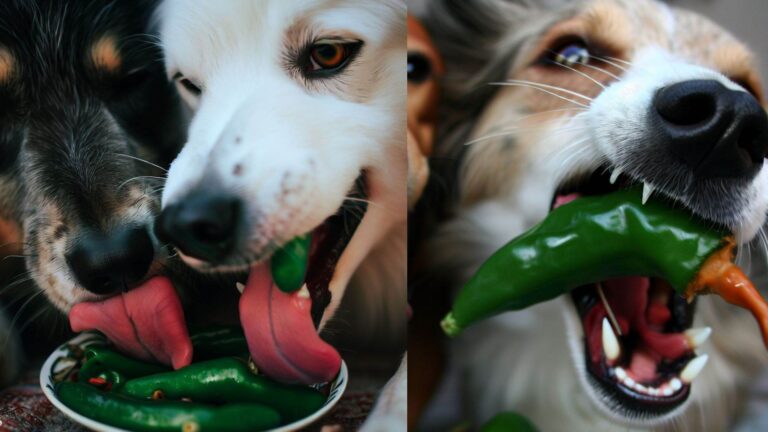Dogs are known for their love for meat, and pork is one of the most commonly consumed meats worldwide. As a dog owner, it is natural to wonder if you can feed your furry friend some of your pork dishes.
The answer is yes; dogs can eat pork. However, there are certain considerations to keep in mind before feeding pork to your canine companion.
In this blog post, we will explore the benefits and potential risks of feeding pork to dogs and provide some tips on how to safely incorporate pork into their diet.
Table of Contents
Benefits of Feeding Pork to Dogs
Pork is an excellent source of protein, which is essential for building and maintaining muscle mass, as well as repairing tissue. It is also a good source of essential vitamins and minerals, such as zinc, selenium, and iron, which play important roles in maintaining a healthy immune system, supporting metabolism, and aiding in the production of red blood cells.
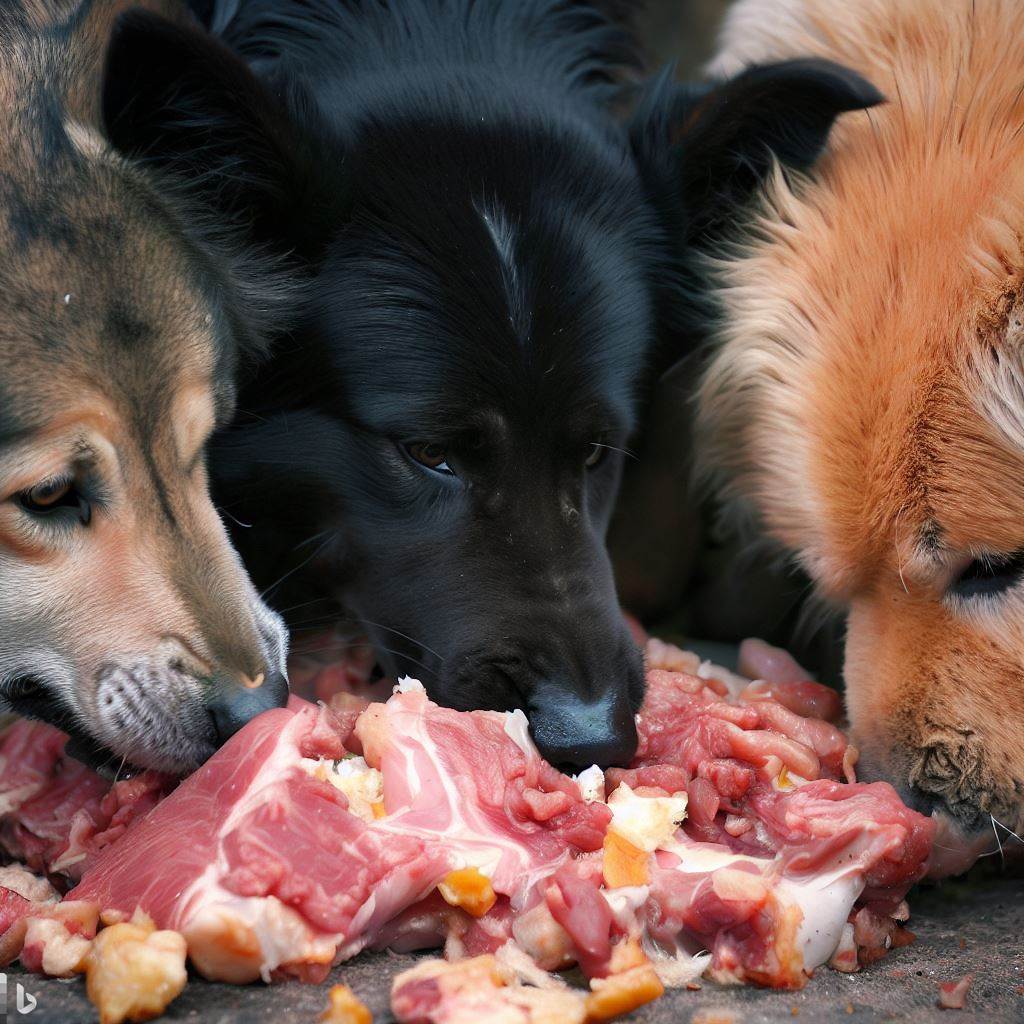
Another benefit of feeding pork to dogs is that it can be a more affordable option than other meats, such as beef or lamb, making it a good choice for pet owners on a budget.
Additionally, many dogs enjoy the taste of pork, which can help to keep them interested in their food and encourage them to eat a balanced diet.
Potential Risks of Feeding Pork to Dogs
While pork can be a nutritious addition to your dog’s diet, there are some potential risks to keep in mind. One concern is the risk of parasites, such as trichinella, which can be present in undercooked or raw pork. These parasites can cause serious health problems for dogs, including vomiting, diarrhea, and even death. Therefore, ensuring that any pork fed to your dog is fully cooked and free of any bones is important, which can also pose a choking hazard.
Another risk associated with feeding pork to dogs is the high-fat content. While dogs need some fat in their diet for energy and to maintain healthy skin and coat, excessive fat intake can lead to obesity and other health problems, such as pancreatitis. Therefore, it is important to feed your dog in moderation and choose lean cuts, such as pork loin or tenderloin, rather than fatty cuts like bacon or sausage.
Finally, it is important to note that some dogs may be allergic to pork or have digestive issues that make it difficult for them to process this type of meat. Suppose your dog experiences any adverse reactions, such as vomiting or diarrhea, after eating pork. In that case, it is best to consult with your veterinarian to determine if pork should be avoided in the future.
Tips for Feeding Pork to Dogs
If you decide to incorporate pork into your dog’s diet, there are some important tips to keep in mind to ensure their safety and health:
- Always choose high-quality, fresh pork from a reputable source.
- Cook pork thoroughly to an internal temperature of at least 145°F, and avoid feeding any raw or undercooked pork.
- Remove any bones or fatty portions from the pork before feeding it to your dog.
- Feed pork in moderation as part of a balanced diet that includes other protein sources, such as chicken or fish.
- Monitor your dog for any signs of digestive issues or adverse reactions, and consult with your veterinarian if necessary.
Read More: Can Dogs Eat Salmon?
FAQs
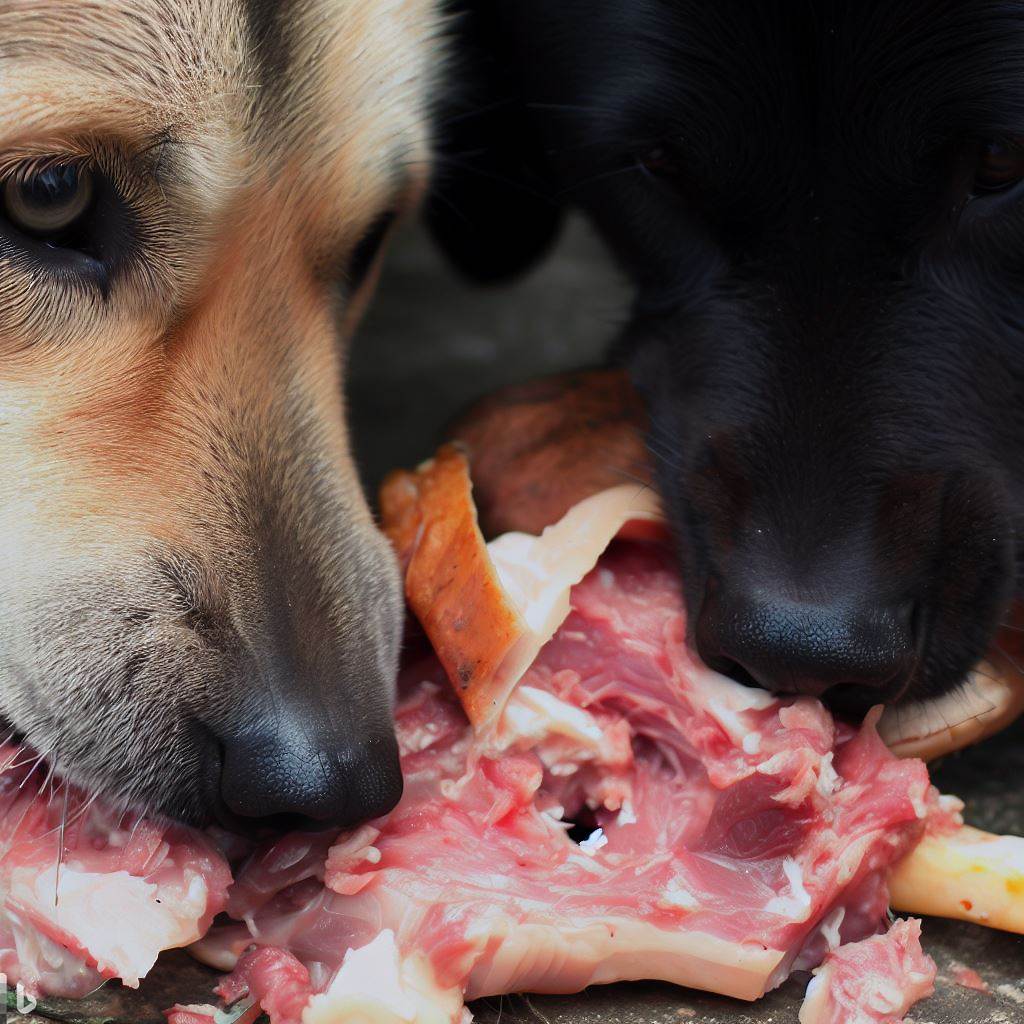
Is pork safe for dogs to eat?
Yes, pork is safe for dogs to eat if it is cooked thoroughly and free of bones.
What cuts of pork are safe for dogs to eat?
Lean cuts of pork, such as pork loin or tenderloin, are safe for dogs to eat. Fatty cuts like bacon or sausage should be avoided.
Can dogs eat raw pork?
No, dogs should not eat raw pork as it can contain parasites that can cause serious health problems.
Can dogs eat pork bones?
No, dogs should not be given pork bones as they can cause choking and digestive issues.
Is pork good for dogs?
Pork can be a good source of protein and essential vitamins and minerals for dogs if fed in moderation and cooked properly.
How should I cook pork for my dog?
Pork should be cooked thoroughly to an internal temperature of at least 145°F to ensure that any harmful bacteria or parasites are destroyed.
How much pork can I feed my dog?
Pork should be fed in moderation as part of a balanced diet that includes other protein sources. The amount of pork to feed will depend on your dog’s size, age, and activity level.
Can pork cause health problems in dogs?
Pork can cause health problems in dogs if fed in excess or if it is not cooked properly. Fatty cuts can lead to obesity and pancreatitis, while undercooked or raw pork can contain harmful parasites.
What should I do if my dog has an adverse reaction to pork?
If your dog experiences any adverse reactions after eating pork, such as vomiting or diarrhea, stop feeding pork immediately and consult with your veterinarian. They can provide guidance on whether or not pork should be avoided in the future.
Can dogs eat pork rinds?
It is not recommended to feed pork rinds to dogs as they are high in fat and sodium, which can lead to digestive issues and obesity.
Can dogs eat pork liver?
Yes, pork liver is safe for dogs to eat in moderation as it is a good source of protein, vitamins, and minerals. However, it should not make up a significant portion of their diet.
Can dogs eat pork ribs?
It is not recommended to feed pork ribs to dogs as they can be a choking hazard and may also splinter and cause digestive issues. Additionally, they are usually high in fat and salt, which can lead to health problems such as pancreatitis and obesity.
Conclusion
In conclusion, dogs can eat pork, but it is important to be aware of the potential risks and to take precautions to ensure their safety and health. Pork can be a nutritious and affordable source of protein for dogs, but it should be fed in moderation and cooked thoroughly to avoid any health problems.
If you are unsure whether to feed your dog pork or if your dog experiences any adverse reactions after eating it, consult your veterinarian for guidance

